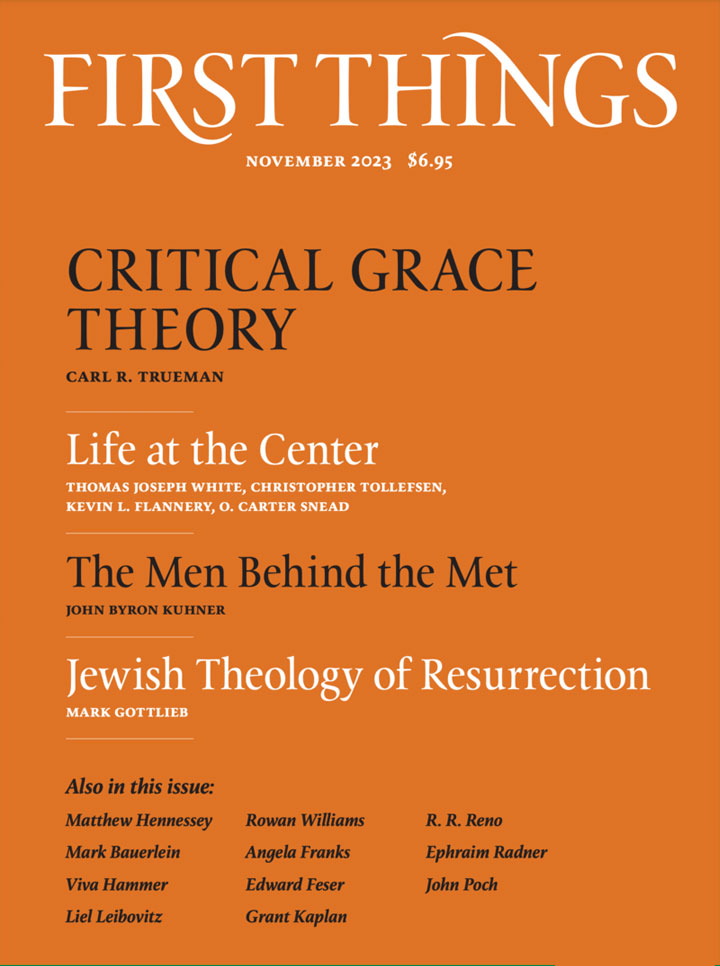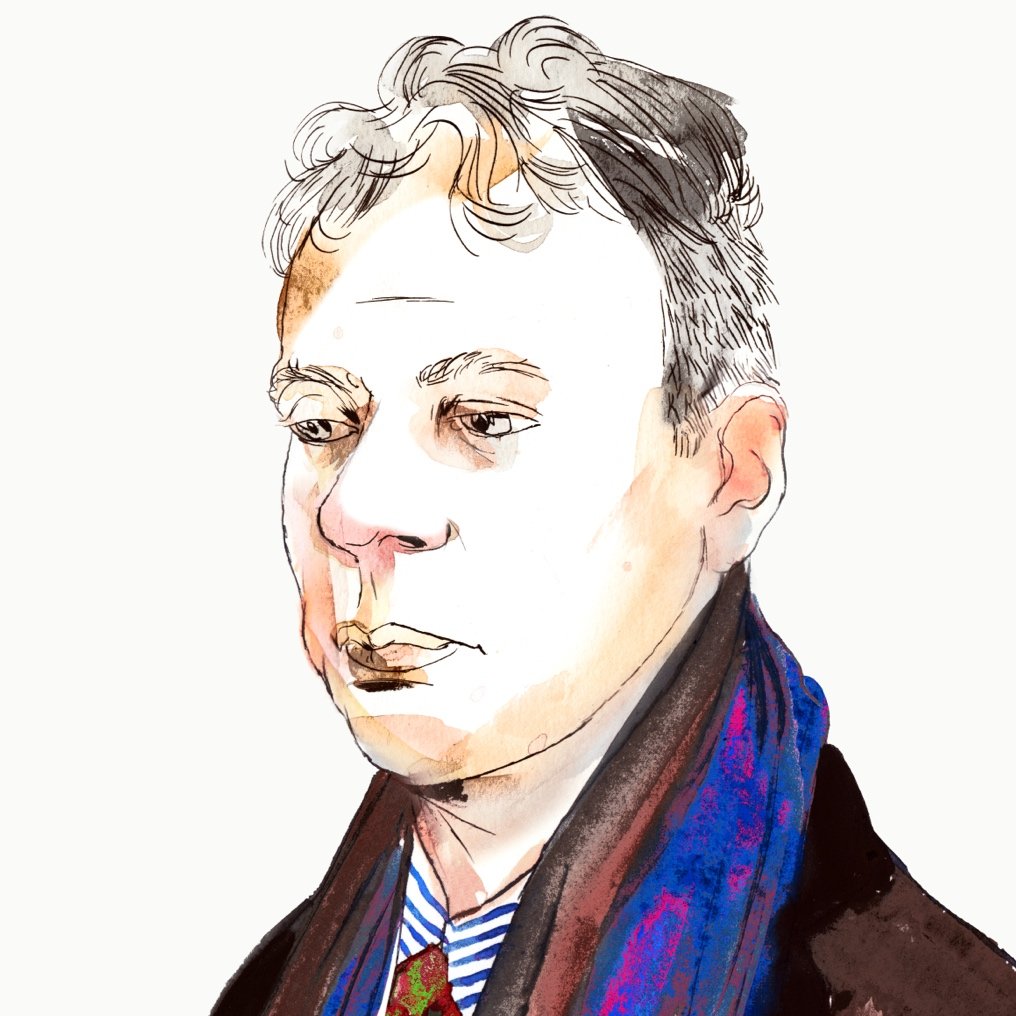When Ibram X. Kendi and other anti-racists take the fact of disproportionate outcomes as proof of racist practice at work, common sense asks, “Who’s doing it? Where’s the bias? Show us the evidence.” Common sense treats racism (or any other identity injustice) as an empirical matter, an event in time and place. The crime is local, the culprits specifiable. But anti-racists aim higher, impatient with the liberal model of free will and a level playing field. They want an aggressive anti-practice, a new and improved inequality, a corrective bias. Segregated dorms and graduations, quotas in hiring and contracts, a forthright disgust with “whiteness,” and other illiberal advents point the way.
It may seem inscrutable that discrimination is necessary to end discrimination. One qualifier, though, explains the whole thing: “systemic,” a word whose utterance has a mystical sound. Bias that is systemic doesn’t surface here or there, in or through this person or that. It isn’t a willed act or a conscious decision. Systemic bias occurs everywhere in the system and at all times, however innocent and natural the operations of the system may appear. It is subtle and omnipresent. The prejudice that underlies the system has existed for so long and been exercised so many times that it proceeds through individuals as smoothly as the air they breathe. Those who recognize it are an especially sensitive and virtuous group.
Genuine reform must address the whole system, the Establishment, the fabricated superstructure, the “established universe of meaning,” which works most effectively when we don’t notice it. The most resistant discrimination inheres in the implicit rules and humdrum procedures that select for this type of person and not for that. The SAT was created as a tool of equity, a way for the smart low-income kid in the rural Midwest in 1950 to prove his readiness for the Ivy League. Seventy years later, the SAT only confirms inequity—since rich kids can hire SAT tutors—which is why so many admissions offices have dropped it.
To accept the SAT and advocate for better test prep for under-represented youth is the kind of liberal adjustment that leaves the system in place. Partial reforms devised by well-meaning egalitarians will be exploited most cannily by those already privileged within the system. For “within a repressive society, even progressive movements threaten to turn into their opposite to the degree to which they accept the rules of the game.”
The line about the “rules of the game,” like the phrase “established universe of meaning,” comes from Herbert Marcuse’s “Repressive Tolerance” (1965), an essay that everyone confronting woke politics today should reread. Marcuse speaks for downtrodden minorities and classes, people without rights or opportunities, security or healthcare, dehumanized by bureaucratic apparatus and mass culture. His prescription is infamous: a declaration of “extreme danger,” of “an emergency situation” in the United States that demands unsparing shutdowns of conservatives, whom Marcuse labels “regressive.” If we are to have “liberation of the Damned of the Earth,” he concludes, we need
withdrawal of tolerance from regressive movements before they can become active; intolerance even toward thought, opinion, and word, and finally, intolerance in the opposite direction, that is, toward the self-styled conservatives, to the political Right.
This righteous intolerance reaches all the way into the right’s heads. Marcuse acknowledges that his proposal entails “extreme suspension of the right of free speech and free assembly”—an “anti-democratic” proposal. Of course, he likes John Stuart Mill’s marketplace of ideas as much as the next guy. But what can one do when minority groups lack civil rights, Western nations conduct “police actions” in former colonies, and the hyperconcentration of political-economic power blocks effective dissent?
We don’t have a system of equal opportunity, the argument goes. Liberal tolerance presumes a population of enlightened persons able to “develop their own thoughts, to grasp their true interests and rights,” Marcuse says. But in America circa 1965, “manipulated and indoctrinated individuals . . . parrot, as their own, the opinion of their masters.” They don’t even know they’ve been brainwashed.
Under the rule of monopolistic media—themselves the mere instruments of economic and political power—a mentality is created for which right and wrong, true and false are predefined wherever they affect the vital interests of the society.
Note the word “mentality.” Two pages later, Marcuse describes the system—a “totalitarian organization”—as fostering “a mental attitude” that operates prior to any debate in the marketplace. The term “mentality,” which ties Marcuse to Hegel and Marx, signals a preconscious condition formed by and through an ideological habitat of media, schooling, commodities, and a marketplace of ideas that is not a neutral forum but a setup. The system is so pervasive and stable that “false consciousness has become the general consciousness.” People of liberal tolerance demand that we accept any and all rational opinion into the public arena, with the consequence that “the stupid opinion is treated with the same respect as the intelligent one, the misinformed may talk as long as the informed, and propaganda rides along with education, truth with falsehood.”
That’s not equality and openness, Marcuse says, but the dilution of dissent. The result is a marketplace with too many persuasions for genuine reform to emerge. Dissenters and radicals can never win in “a society in which powers are and remain unequal,” in which the Big Guys flood the market with false and self-serving discourse. The facts of oppression can and must be unveiled—“there is an objective truth which can be discovered”—but it won’t happen in this manipulative, preconditioned, over-opinionated setting.
So the “rules of the game” must change. The whole system must be targeted, its core values exploded. We need a “rupture,” an “upheaval,” “revolutionary violence,” which may cross moral lines. But, Marcuse asks, “since when is history made in accordance with ethical standards?” Authentic radicals see the preconditions others don’t, the indoctrination not realized by the indoctrinated, and they act accordingly. Liberals with good intentions only produce window dressing. They answer race discrimination with color blindness, a pseudo-reform that leaves inequities in place. Radical change requires anti-racism, which is repressive tolerance adapted to twenty-first-century needs.
As woke policies spread through one institution after another, we can observe the great forensic advantages of systemic thinking. It separates the conscientious, discerning people from the complacent rest, whose unconsciousness of complicity is no mark of innocence. Honored members of the system who pledge to cleanse it of injustice get little sympathy. Those who search the system for concrete acts or signs of racism only delay the necessary interventions. Any villain they find is merely a functionary who is insufficiently subtle at “normalizing” the workings of the system. If no villain is found, well, that proves nothing. Systemic -isms and phobias are unfalsifiable. Critics of systems have all the evidence they need to assert their unjust mechanics—namely, disparate outcomes. Since the results are there, the causes must be, too—but they’re invisible, which is why wholesale change is necessary.
In the introduction to his Lectures on the Philosophy of History, Hegel wrote:
In history an additional result is commonly produced by human actions beyond that which they aim at and obtain, that which they immediately recognize and desire. They gratify their own interest; but something further is thereby accomplished, latent in the actions in question, though not present to their consciousness, and not included in their design.
Sweeping, slow-moving currents carry individuals forward without their perceiving it. History, the big trends and enduring influences, works through us without our knowledge. The “something further accomplished” evinces a large force in motion, steering human action yet comprehended rarely and only after the fact. People naturally assume “the so-called ‘psychological’ view,” Hegel states, which attributes actions to individual motive and ignores the “cunning of reason”—Hegel’s famous term for the paths civilization takes quite apart from the intentions of its prime agents (kings, prophets, inventors, thinkers). According to him, the figures who made history didn’t quite know what they were doing. Reason, not this or that person, was the primary cause of Progress. Socrates was no political agitator, Hegel observes. His home was the realm of reflection, not the assembly. He upheld his duties as citizen and ended his life by obeying the authorities. But in insisting on “absolute inherent independence of thought”—that one decide for oneself matters of right and wrong and not merely follow the customs of Athens or any other political body—he marked a “revolutionary aspect toward the Athenian state” and unintentionally initiated its decline.
Take away the ideal element, pull the process out of the clouds of Universal History, and you get Marx’s history as class struggle and individual incognizance as “false consciousness.” Marx, likewise, thinks little of individuals outside their material conditions. The exploited classes, those without property, generally envision their improvement as, precisely, the acquisition of property. That aspiration breaks up the proletariat into grasping individuals who accept the very conditions that abuse them. They do not see themselves and their rulers alike as “classified” products of a private property system that degrades everyone. True improvement for the former begins not with the success of this or that disadvantaged individual within the system, but with a collective awareness that puts the whole thing in doubt: “poverty conscious of its own spiritual and physical poverty.”
For Marx, that realization is nearly impossible until bad economic circumstances force it. The rulers anticipate this potential and employ a subclass of clerics, intellectuals, and artists to rationalize the ruling inequities, to make them appear natural and normal, and Marx thinks their ideological labors have succeeded. A little bread and many circuses mollify the proles, religion pacifies them, until hunger and cold become too much and class consciousness begins to stir. Or, perhaps, the sight of too much wealth on the other side of the tracks sparks a resentment that no diversion or worship can liquidate. Even then, victims struggle to determine the mechanisms of victimization. Advanced societies have devised ever more clever ways of disguising them.
We needn’t give much credit, then, to the pledge of anti-racism made by the admissions dean who wishes he could secure a higher rate of black and brown students in the entering class. In systemic thinking, overt intentions don’t figure in decision-making. Signs that said “Colored Entrance” disappeared sixty years ago; now segregation continues by means of putatively objective, ostensibly race-neutral filters. Individuals who implement those filters are instruments of oppression without knowing it. The victims, too, usually fail to understand the process.
Systemic bias is a ghost in the machine. To believe in it, to have faith, to deny the evidence of the senses, is a moral duty. If you can’t see it, at least you can listen to the seers. Hegel, Marx, Marcuse, and the twenty-first-century anti-racists erect a supersensible reality below and above mundane affairs, and they appoint themselves the visionary party, with the power to survey it. “Here, too, it is the whole which determines the truth,” Marcuse affirms. In their coy references to the systemic nature of present inequities, the seers lay claim to a higher Truth, a firmer contact with the Real. One could cast them as postmodern Platonists, children of Socrates who’ve emerged from the cave, except that they do not ask questions and draw us to realize our error through civil dialectic. Instead, they tell us what’s what, outline the lower frequencies and higher laws, and expect our grateful assent.
Christmas Nationalism
Writing for UnHerd, Felix Pope reported on a December 13 Christmas celebration organized by the English nationalist…
An Anglican in the Dominican House
At 9 p.m., when most of the world is preparing for bed, a sea of white habits…
No, Infant Baptism Is Not Abuse
One of the most striking aspects of our therapeutic age is the increasing inability of many to…



